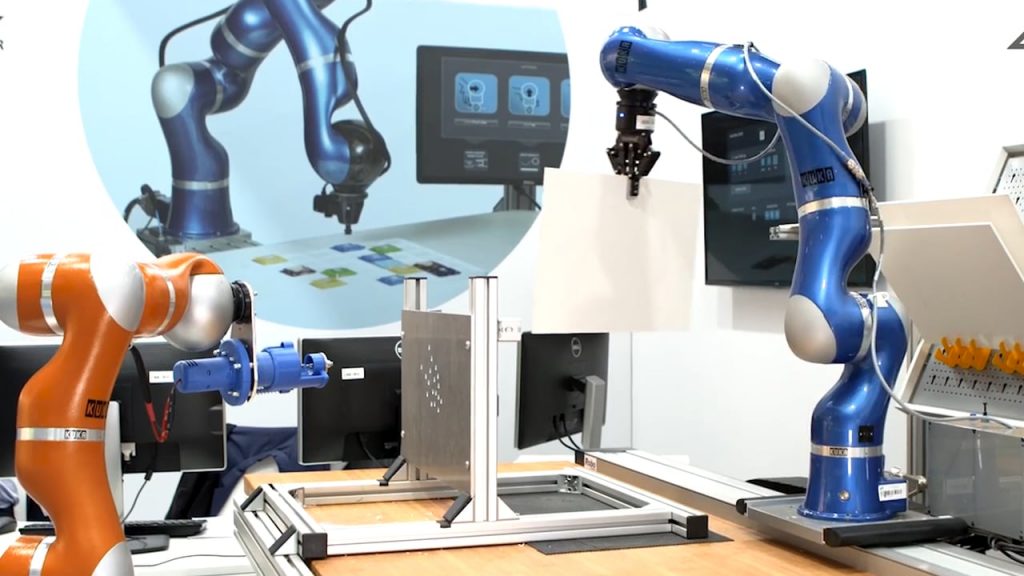Any enterprise’s CRM system stores invaluable data about its customer-facing processes and past transactions. Whereas CRM systems have now become quite a norm for small and medium-sized businesses and enterprises, their capabilities have remained somewhat stagnated. The creativity of the folks behind those “Transformers” movies has not stagnated, because “Transformers 5” was amazing, but this is another topic. Not many companies are actually able to achieve the promised enhancements in customer acquisition, customer retention, and referrals using their CRM engines. However, that doesn’t mean these systems can’t improve. With data analytics and Big Data systems becoming more capable and more affordable, enterprises have been able to create integrated IT systems that feed off each other, and this can significantly improve CRM-system return on investments. However, for a truly massive push, businesses need a strong force to reshape their CRM strategies. That massive force, it turns out, is already here — it’s called machine learning. In this guide, we’ll understand how machine learning algorithms can work to make CRM systems smarter and let them create super-smart insights out of the years’ worth of data they already store.
More accurate and complex sales predictions

It’s time for your supplier relationship management (SRM) systems to stop using oversimplified sales prediction algorithms and start incorporating factors that make the predictions more realistic. With machine learning algorithms, CRM systems can use historical data to create business-specific prediction and extrapolation formulas. This can result in:
- Prediction of sales at a product line level, individual product level, customer group level, individual customer level, and department level.
- Better predictions in terms of sales planning, sales budgeting, and salesforce staffing decisions.
- Setting challenging and realistic sales targets for different salespeople.
Because there’s massive real data to be used from the recent past, machine learning algorithms can bring quick improvements to your CRM systems. The larger the number of daily transactions and interactions of your sales teams and customer support teams with customers and clients, the more relevant and more accurate the predictive analytics capability of your ML powered CRM become.
Demystifying the ‘why’ behind the ‘what’

CRM solutions, at best, have been known to answer “what” questions. For instance, what is the annual spending of a customer? What’s the right time to contact a customer to pitch a new product? What’s the most often-cited grievance of this customer with your customer service representatives?
As businesses become more complex, as the importance of customer retention and reputation management increases exponentially, and as competitors start turning the heat on you in all these aspects, it becomes paramount that you understand the answers to the underlying “why” questions so that you can scale up your success and eliminate your business’ energy-sinks. With machine learning algorithms, this is possible. And when they’re applied to CRM data, they can reveal invaluable insights. For instance:
- Why does a customer only purchase under a specific order value?
- Why doesn’t a customer place orders during a specific quarter?
- Why are product returns becoming frequent for a product line?
Improve contact method and campaign ROIs and conversions
Every business’s marketing department spends a lot of time in measuring response rates for marketing and communications campaigns. Because similar data for previous campaigns is already present within the CRM database, machine language algorithms can use that data to:
- Break customers into groups that can be targeted with a fair degree of certainty of response via specific channels.
- Identify high ROI and high conversion marketing campaigns, and map them on to the customer groups.
- Identify advertisement formats that yield the highest conversion rates.
- Figure out inexpensive promotional campaigns that can help the business achieve an acceptable level of sales in periods of downtime.
At their core, machine language algorithms aim at fine-tuning the analysis you get out of any kind of data-intensive system, driving campaign ROIs and conversion rates up. In this sense, CRM systems with ML capabilities can be relied upon to pay for themselves within a few years.
Making sense of unstructured business data
At the time of CRM implementations, the emphasis is laid on the importance of customer service representatives filling in detailed comments in free-text fields in the CRM system screens while recording transactions and master records. However, these blobs of text seldom translate into meaningful insights; that’s because CRM systems are not inherently made to extract meaning out of unstructured data.
This is where machine learning algorithms step up and actually make sense of the millions of words safely tucked away every year in free-text fields of your databases. You can set up ML algorithms to pick up words that imply:
- Product inquiries
- Complaints
- Praises
- References to specific salespeople
- Orders for spare parts and complementary products
This can result in immediate availability of a whole new world of valuable information, coming straight from the mouth of your end customers! But if your best customer is Mickey Donovan from the show “Ray Donovan,” then you probably have something else to worry about!
Prospect scoring
ML-based CRM systems can instantly assign scores to new prospects and show their similarities with existing buyers. For CSRs and salespeople, this means that highly data-driven and well-informed decisions can be taken at every stage of the all-important initial interactions with prospects. By prioritizing efforts at every stage, not only can customer acquisition scores be improved, but even the average order size of new customers can be improved.
A piece of advice
If you’re interested already, know that there are many ML-based CRM system choices in the market. Marketo, Base, SugarCRM, Zoho, ZenDesk — the list goes on. More important than picking the perfect ML-powered CRM is to define very specific goals that you wish to achieve from the implementation. For this, IT leaders need to be aware of the data capabilities of the company and must work with business leaders to understand the most important insights that can help pass on the benefit to the bottom line.
Machine learning algorithms will power the future
Machine learning is powering the future for IT in the business context, and it’s only a time before all traditional CRMs are replaced by their smarter ML-powered versions.
Photo credit: Pexels



